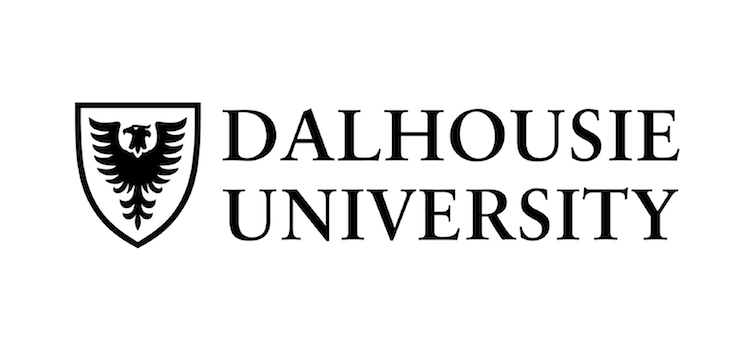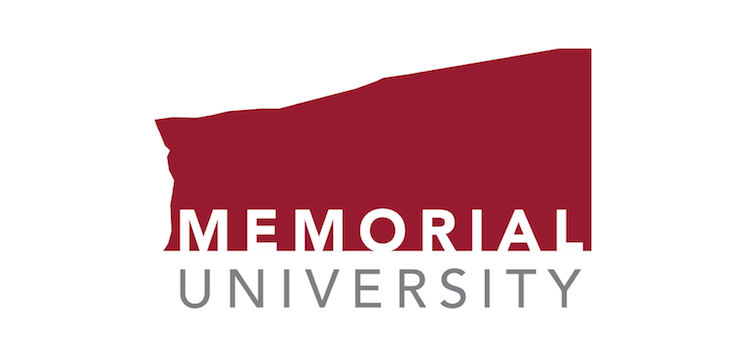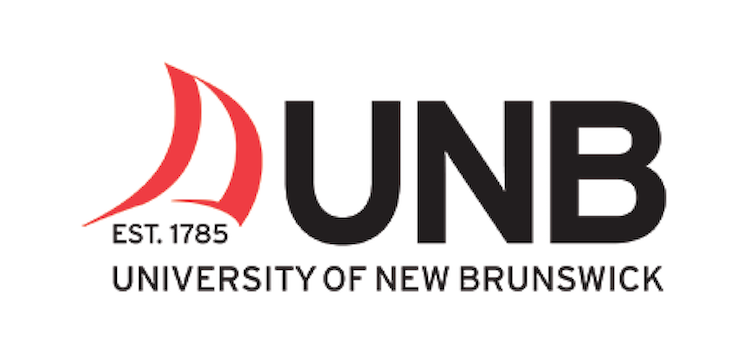Fall 2020 Term
The purpose of the AARMS Advanced Course program is to give graduate students and upper year undergraduates from AARMS Member Universities an opportunity to take courses not offered at their home institution free of charge. In Fall 2020, the courses listed below from Dalhousie, Memorial, or the University of New Brunswick will be offered in an exclusively online format.
Students may be able to claim credit for AARMS Advanced Courses from their home institution using mechanisms similar to the AARMS Summer School. Students hoping to receive academic credit for courses in this program are strongly encouraged to consult with their home institution about this process before the start of lectures.
Please send any questions about this program to Sanjeev Seahra.
Important Dates
Note that applications will be accepted after August 15.
- Saturday, August 15: Review of applications begins
- Tuesday, September 8: Fall term classes begin (Dalhousie)
- Wednesday, September 9: Fall term classes begin (MUN and UNB)
Advanced Algebra
This course covers algebraic field extensions, Galois Theory and some applications. We will follow Chapter 5 of Hungerford’s “Algebra” and supplement it with Dummit & Foote’s “Abstract Algebra”. Time allowing, we will also do some representation theory, for which we will use Dummit & Foote as a general guide.
Before enrolling in this course, students should have taken a course equivalent to the Dalhousie offering MATH 3032: Abstract Algebra II (rings, ideals, fields and groups).
Max enrolment: to be determined
Scheduling: Tuesdays, Thursdays , and Fridays 12:35 – 1:25 pm Atlantic time. (These times can be modified according to the schedules of the registered students.)
Computational Statistics
We will cover some fundamental numerical techniques for statistical inference such as Maximum Likelihood method, Bayesian method, Method of Moments, Optimization and Integration, EM algorithms, Markov Chain and Monte Carlo and other related topics. Some theoretical properties of the methods will also be discussed.
We will extensively use R statistical software which is freely available for Linux, Macintosh and Windows OS. Students should have already taken undergraduate Probability/Mathematical Statistics courses equivalent to STAT 2410 offered at Memorial University and previous exposure to R programming.
Max enrolment: COURSE FULL (NO LONGER ACCEPTING APPLICATIONS)
Scheduling: to be determined
Elementary Algebraic Topology
Branimir Cacic (University of New Brunswick)
Algebraic topology is the systematic use of algebraic tools to solve problems from topology. In this course, we will construct and use the two most elementary of these tools: the fundamental group and singular homology (with integer coefficients). Along the way, we will pick up some basic theory of topological manifolds and CW complexes.
The prerequisites are elementary (point-set) topology—at a minimum, the basic theory of metric spaces and their continuous maps—and elementary group theory.
Max enrolment: COURSE FULL (NO LONGER ACCEPTING APPLICATIONS)
Scheduling: Tuesdays and Thursdays, 10:00-11:30 Atlantic Time
Introduction to Combinatorial and Geometric Group Theory
Nicholas Touikan (University of New Brunswick)
This course will give a self-contained exposition of the basic notions and techniques to work with infinite discrete groups given by presentations. The first part, Combinatorial Group Theory, will cover free groups, group presentations, and algorithmic problems. The second part, Diagram Methods, will cover Stallings’s foldings, Van Kampen’s Lemma, amalgamated free prducts & HNN extensions, and metric small cancellation conditions. The final part, Geometric Group Theory, will introduce quasi-isometries and word hyperbolic groups.
The essential pre-requisite for this course is fluency in the standard techniques of mathematical proof writing. Knowledge of modern algebra, basic analysis, topology, graph theory, and computer science will be assets.
Max enrolment: COURSE FULL (NO LONGER ACCEPTING APPLICATIONS)
Scheduling: Monday, Wednesdays, and Fridays, 2-3 pm, Atlantic time
Introduction to Differential Geometry
Edward Wilson-Ewing (University of New Brunswick)
This class will cover the following topics: embedded curves and surfaces, tangent plane, first and second fundamental forms, curvature, and the Theorema Egregium. Time permitting, we may also discuss Riemannian geometry.
Students should be familiar with multivariable calculus, vector calculus, and linear algebra.
Max enrolment: 6 students from outside UNB
Scheduling: MWF 12:00-12:50 Atlantic time (tentative)
Measure Theory
The theory of measures and Lebesgue integration on abstract spaces. Topics include sigma-algebras, measures, construction of measures, Lebesgue measure on the real line, measurable functions, the Lebesgue integral and convergence theorems, Lp-spaces, product measures, Fubini and Tonelli theorems.
Students should have taken a course in intermediate analysis, such as Metric Spaces or Point Set Topology. Students without either of these specific courses may be accepted if they have demonstrated sufficient mastery in courses involving mathematical formalism, including some course in formal analysis.
Max enrolment: COURSE FULL (NO LONGER ACCEPTING APPLICATIONS)
Scheduling: synchronous streaming MWF 10:35am – 11:25am Atlantic time
Numerical Solution of Differential Equations
The course covers numerical methods for elliptic boundary value problems and an introduction to iterative methods for solution of linear systems. Topics include finite difference and finite volume/element discretization, spectral methods, and fast Poison solvers. The course is a self-contained blend of theory and applications.
Students are expected to be familiar with undergraduate topics in numerical analysis and differential equations. Fluency in a programming language, such as C, C++, Fortran, Matlab, or Python, is expected.
Max enrolment: COURSE FULL (NO LONGER ACCEPTING APPLICATIONS)
Scheduling: synchronous streaming of two lectures per week, Tuesdays and Thursdays, 11 am – 12:15 pm (NL time), which is subject to be adjusted.
Quantum Information and Computing
The course introduces the postulates of quantum mechanics, formulated in terms of linear algebra. They include the prescription of how to extract the physical content of the theory. We illustrate this mechanism on qubits and qubit registers. Quantum gates are introduced and it is explained how they are combined to form quantum circuits. We discuss quantum algorithms (e.g. Deutsch-Josza, Simon, Schor algorithms) and analyze why they are superior to classical algorithms. Noise effects are discussed, including decoherence. Time permitting, we study aspects of the theory of open quantum systems and the markovian approximation.
The course does not require prior knowledge of quantum theory. Basic knowledge of linear algebra is necessary (matrices, eigenvalues, eigenvectors).
Max enrolment: COURSE FULL (NO LONGER ACCEPTING APPLICATIONS)
Scheduling: to be determined
Stochastic Processes
Basic Probability and Conditioning. Branching Processes. Poisson Processes. Discrete Time Markov Chains. Continuous Time Markov Chains. Additional Topics.
The course will have required text Introduction to Probability Models and will use Stochastic Processes both by Sheldon Ross. Students taking this course should have already taken probability courses equivalent to STAT 2060 and STAT 3360 offered at Dalhousie University.
Max enrolment: COURSE FULL (NO LONGER ACCEPTING APPLICATIONS)
Survival Analysis
Asokan Mulayath Variyath (Memorial)
In this course, approaches for analysis of time to event data will be discussed. We will discuss the practical problems and how we can solve these using the efficient statistical methods. In this course, we will cover the basic properties of time to event distributions, parametric statistical analysis, estimation based on large sample likelihood. We also cover a single sample non-parametric methods. We will also consider regression models for time to event data – parametric and semi-parametric regression PH models. We will also cover the problems of competing risks.
Students should have taken statistical inference conference at undergraduate level and basic understanding of R-software. Online classes will be held twice a week with a duration of 75 mins. Course evaluations will be based on assignments, one / two exam and a project.
Max enrolment: COURSE FULL (NO LONGER ACCEPTING APPLICATIONS)
Scheduling: to be determined
Apply to participate in the AARMS advanced course program
Review of applications will start on August 15. Applications will continue to be accepted until all courses are full or the start of lectures.



